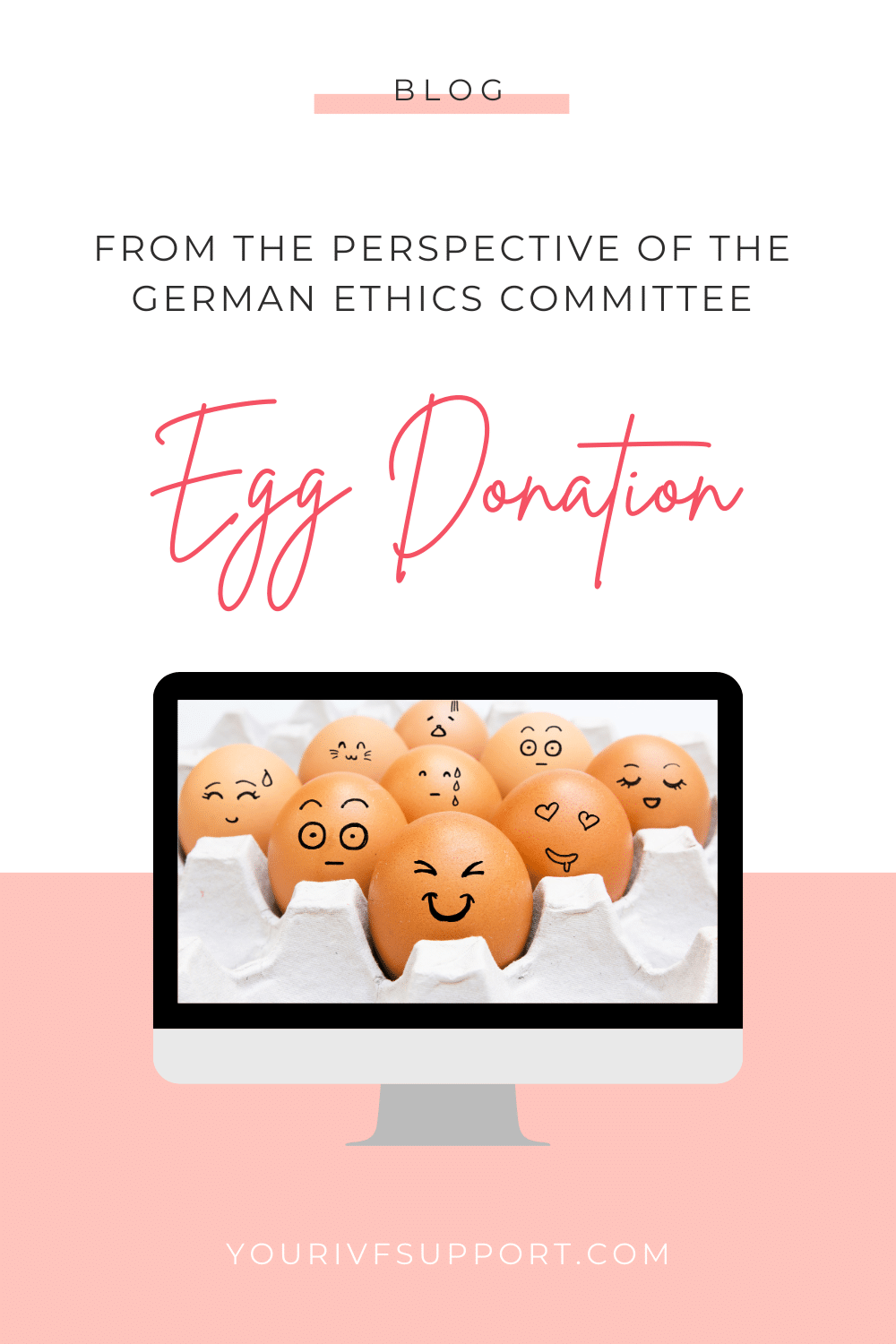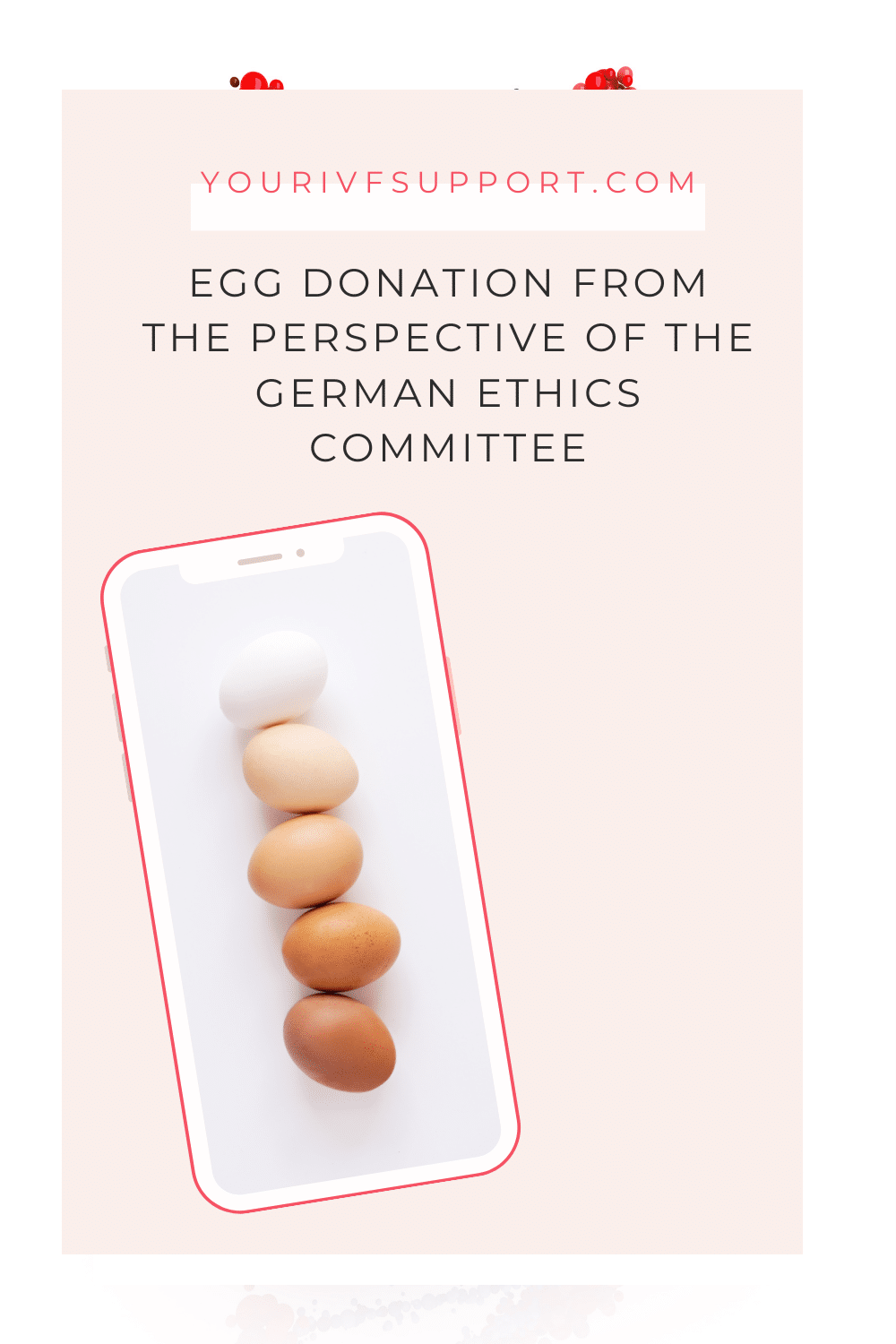In this blog post, I would like to discuss with you a highly topical and controversial issue: egg donation from the perspective of the German Ethics Committee. As a woman who wants to have a child, you will want to consider all options to fulfil your dream of having your own child. Egg donation can be an option, but it raises legal and ethical questions.
In this article, I will discuss the views of the German Ethics Committee on this issue and try to give you a comprehensive overview. I will look at different aspects, such as the legal situation in Germany, the medical requirements and the ethical concerns that may arise from egg donation. At the end of the article you will find a summary with references for further information.
The legal situation in Germany
Egg donation is legally prohibited in Germany. According to the Embryo Protection Act of 1990, it is not allowed in Germany to receive eggs from another woman, even if it is done voluntarily. The law is based on ethical principles that emphasise the protection of the embryo and the dignity of the woman.
The German ethics committees have taken the view that egg donation could affect a woman's dignity because it affects her bodily integrity. It is also argued that the embryo has the right to know its genetic lineage, which could be compromised by egg donation.
Despite the ban, there are women who travel abroad for egg donation. Legal difficulties could arise if the woman returns to Germany and continues the treatment there.

Medical requirements for egg donation
There are certain medical requirements for egg donation. Both the donor and the recipient must undergo a full medical examination to ensure that they are in good physical and mental health.
The donor should be in good physical and mental health and of childbearing age. In addition, genetic tests are carried out to rule out any genetic diseases or disorders.
The recipient must usually have a regular menstrual cycle and undergo hormone treatment to prepare her body for egg donation. This involves taking hormones to stimulate ovulation and build up the lining of the uterus.
The medical procedure for egg donation is usually in vitro fertilisation (IVF). In this procedure, eggs are collected from the donor through a transvaginal puncture and then fertilised in the laboratory with sperm from the recipient's partner or a donor. After a period of development, the fertilised eggs are transferred to the recipient's uterus in the hope of a successful pregnancy.
It is important to note that the success rate of egg donation compared to other fertility treatments can vary and depends on several factors, including the age of the donor, the quality of the eggs and the individual physical conditions of the recipient.
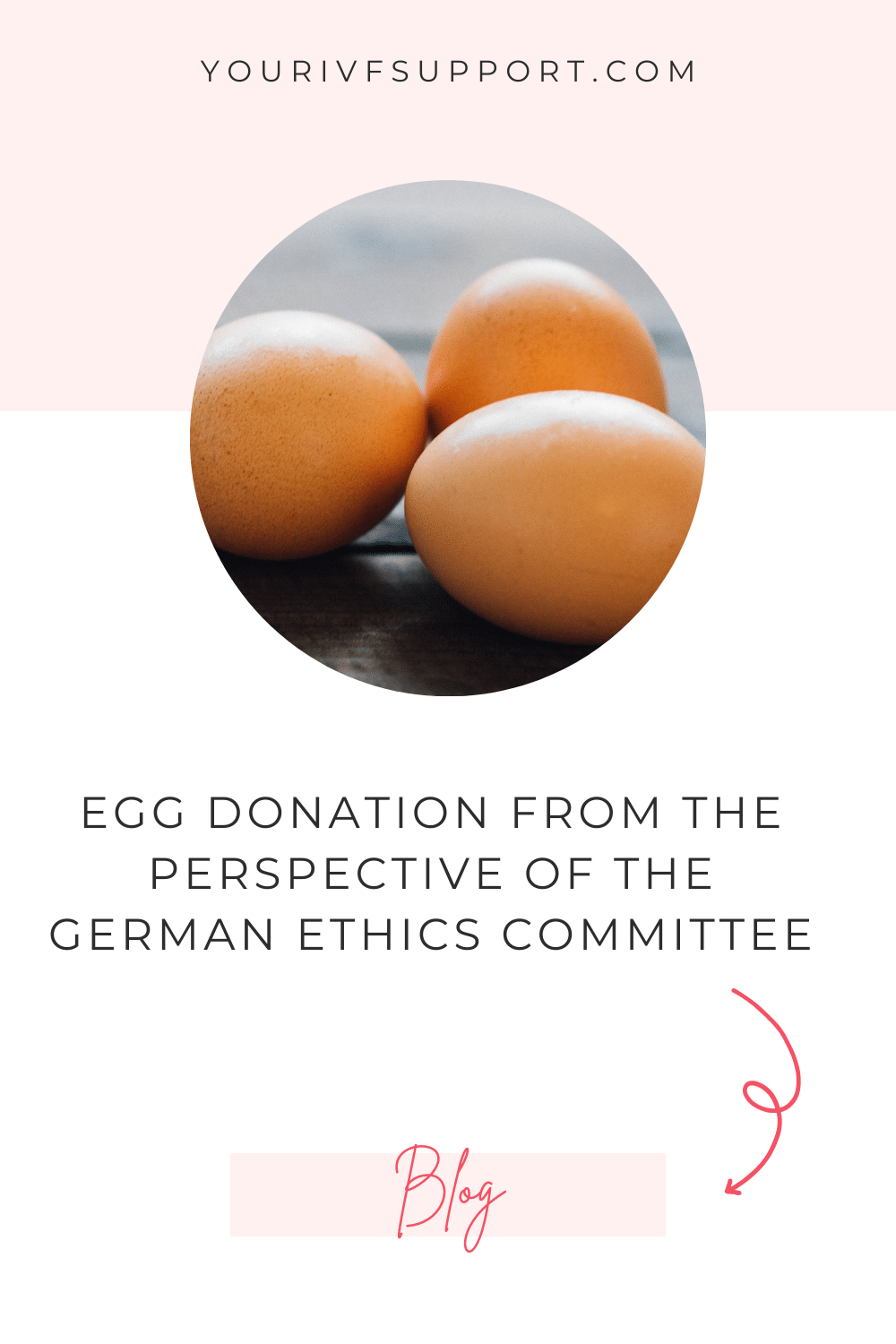

Ethical and moral concerns about egg donation.
Egg donation raises a number of ethical and moral issues. A central issue is the autonomy and dignity of the women involved. Opponents of egg donation argue that the donor's physical integrity is compromised and that the recipient may experience emotional distress because of the lack of genetic link between her and the child.
Another ethical issue is the child's right to know its genetic parentage. This is usually not possible with egg donation, as the identity of the donor remains anonymous. Critics argue that the child has the right to know its genetic origins in order to better understand its own identity.
Egg donation can also lead to the commodification of the body and reproduction. On the other hand, proponents of egg donation emphasise a woman's right to make her own decisions about her own body and reproductive options. They argue that the possibility of egg donation offers women with an unfulfilled desire to have a child a realistic option to have a biological child.
The challenge for the German Ethics Committee is to take these different ethical perspectives into account and to make a sound recommendation that ensures the protection of the women involved and the dignity of the embryo.
"It is important that women who wish to have children and are interested in egg donation receive all relevant information and are aware of the legal and ethical aspects."
Experiences of women who have chosen to donate oocytes
Despite legal restrictions and ethical concerns, some women have chosen egg donation to fulfil their desire to have a child. There are reports from women who speak positively about the possibility of egg donation, emphasising that it has allowed them to form a deep emotional bond with their child, regardless of the genetic link.
These women often talk about a long and emotional decision-making process in which they considered and weighed different options. They emphasise that egg donation was a chance for them to fulfil their desire to have a child and start a family.
Some women also say that they have thought deeply about the ethical issues and have concluded that the benefits of egg donation outweigh the disadvantages for them personally. They find it rewarding to be able to raise a child despite biological differences and emphasise that the love and care they give to their child does not depend on the genetic link.
It is important to note that the experience of women who have chosen to donate eggs can vary from person to person. Each woman deals with her own desire to have children and her own ethical considerations. It is therefore important for women considering egg donation to be well informed and to think carefully about the possible consequences and emotional aspects.
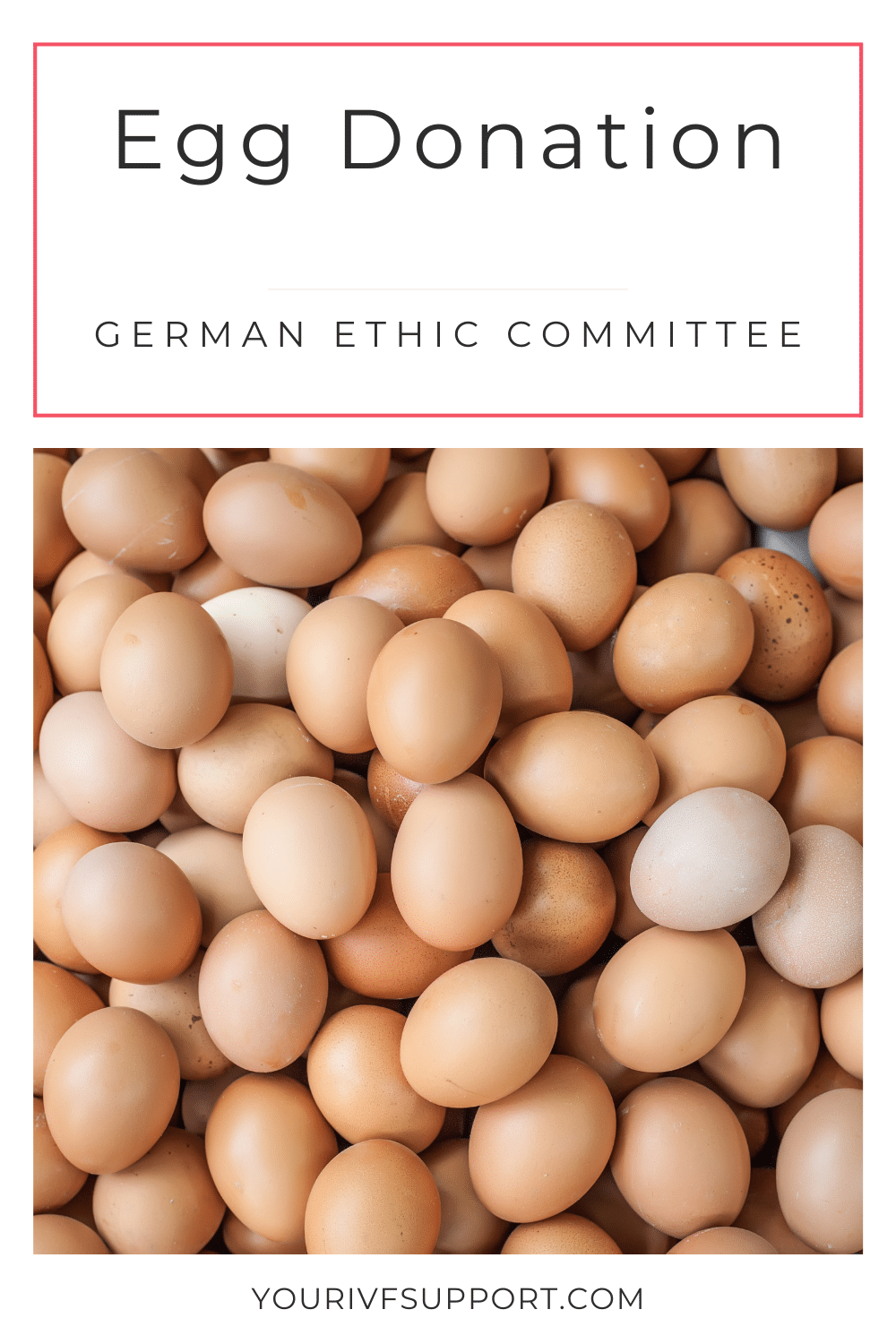
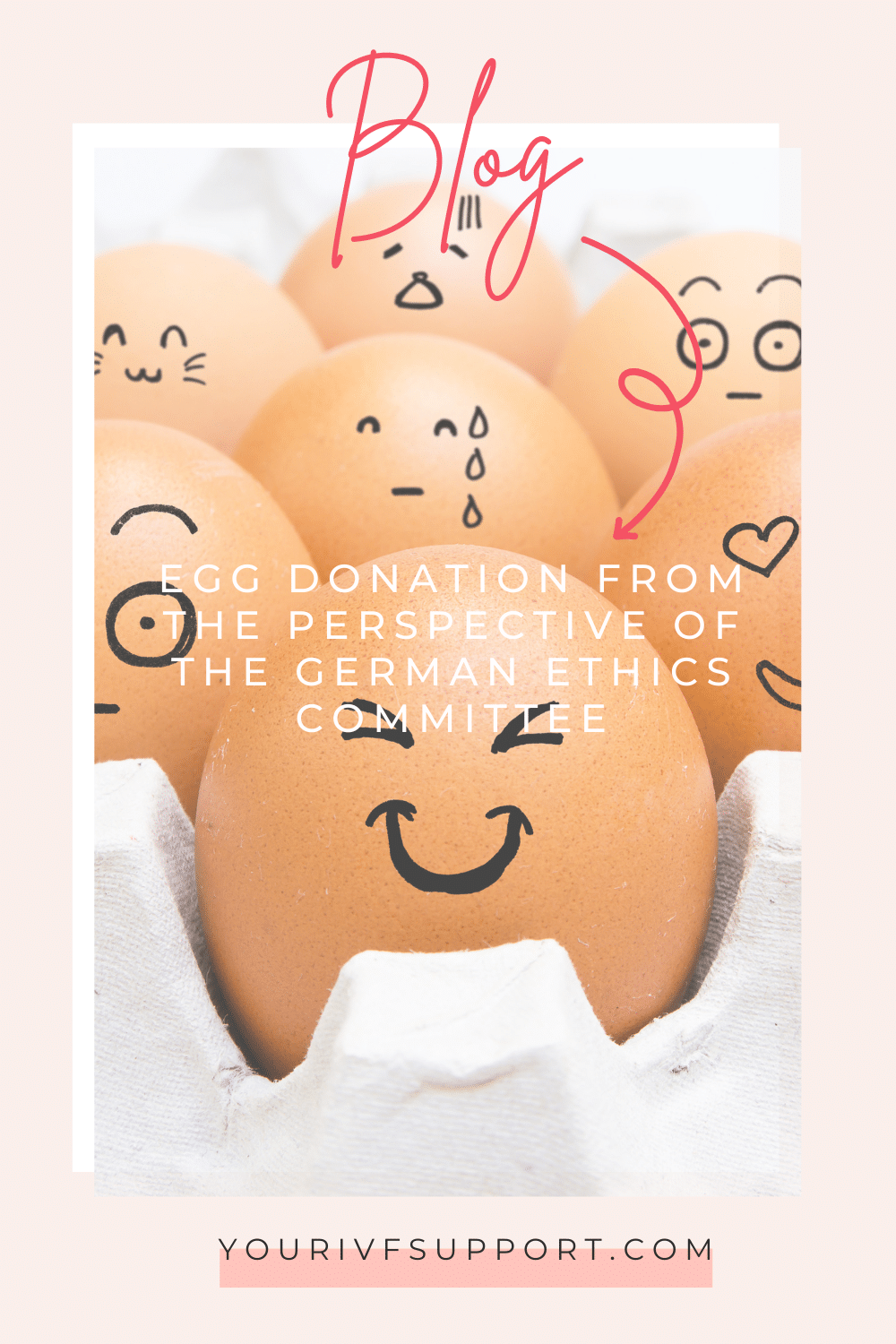
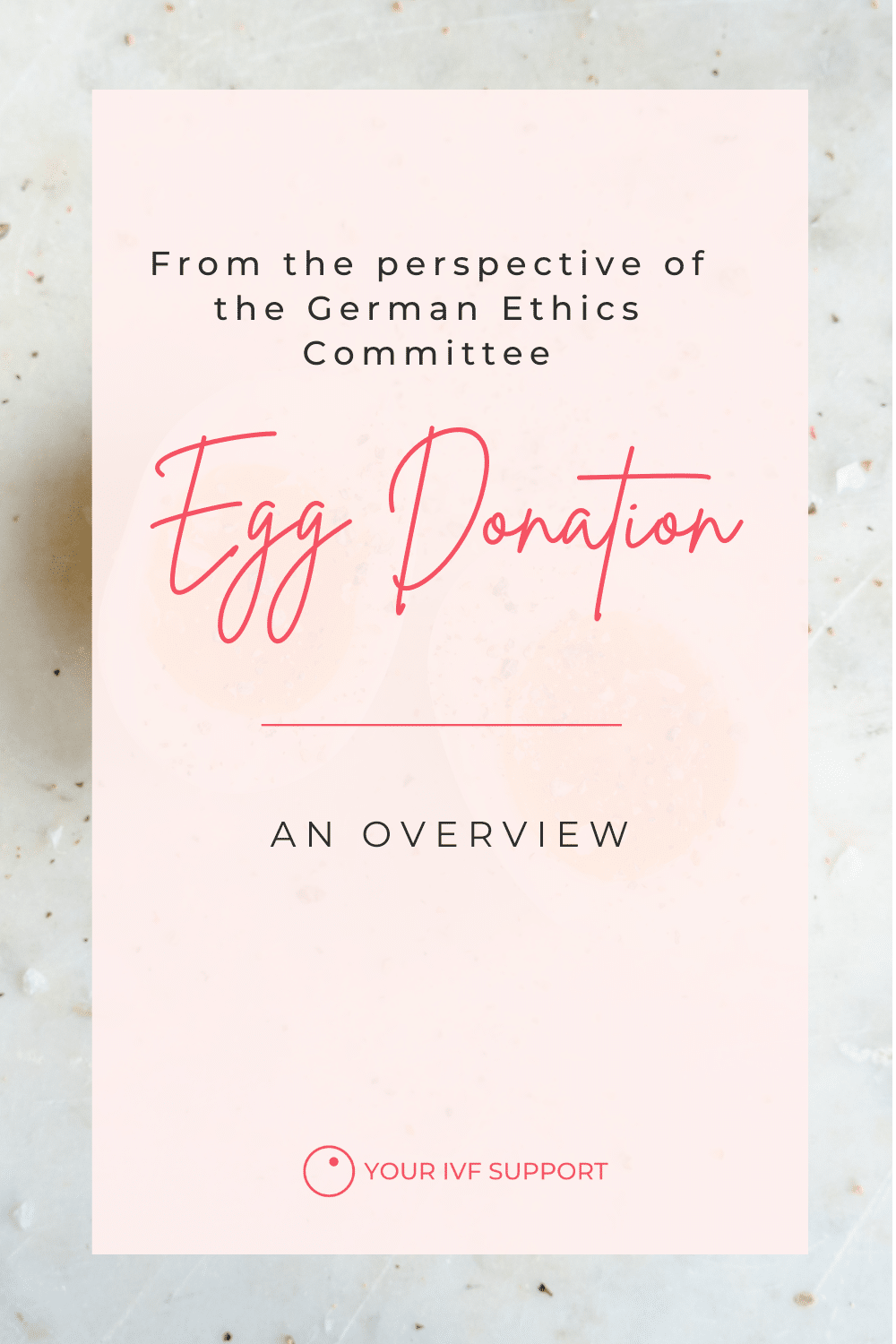
Conclusion
Egg donation is a controversial issue that raises both legal and ethical questions. The German Ethics Committee has so far opposed the legalisation of egg donation, arguing that the dignity of the woman and the right of the child to know its genetic origin must be preserved.
It is important that women who wish to have children and are interested in egg donation receive all relevant information and are aware of the legal and ethical aspects. It is also advisable to seek professional advice to take into account personal circumstances and individual needs.
The debate about egg donation is likely to remain controversial. It is possible that in the future new evidence and societal changes may lead to a revision of current laws and guidelines. It remains to be seen how the situation will develop in Germany and internationally.
It can be said that egg donation may be an option that women who want to have children can consider. However, it is important that they consider the legal, medical and ethical issues and make an informed decision that reflects their individual needs and values.
Editor's note: Egg donation is currently banned in only four European countries. These are Germany, Switzerland (where the ban is expected to be lifted in 2024), Bosnia and Turkey. Egg donation is legal in all other European countries.
